Russia
The International Olympic Committee (IOC) said on Tuesday that Russia is banned from the 2018 Winter Olympics set for next February in PyeongChang, South Korea, over doping concerns.
The IOC also asked the Russian Olympic Committee (ROC) to pay 15 million U.S. dollars to reimburse the costs of the investigations and to contribute to the establishment of the Independent Testing Authority (ITA).
“Russian Olympic Committee is suspended with immediate effect. Individual clean Russian athletes will be able to participate under strict conditions at the Olympic Winter Games PyeongChang 2018. These invited athletes will participate, be it in individual or team competitions, under the name ‘Olympic Athletes from Russia’, with the acronym name ‘OAR,’” said IOC President Thomas Bach.
Vitaly Mutko, former Russian Sport Minister during the 2014 Sochi Olympics, and his then Deputy Minister Yuri Nagornykh are both excluded from any participation in all future Olympic Games, the IOC announced.
The IOC also ruled that no official from the Russian Ministry of Sport will be accredited for the PyeongChang Games.
Last year, an independent World Anti-Doping Agency (WADA) commission headed by Professor Richard McLaren released a report accusing Russia of state-sponsored doping programs to illegally boost Russian athletes’ performances.
The report was largely based on the testimony of the former head of a Moscow anti-doping lab Grigory Rodchenkov, who fled to the United States at the end of 2015, becoming an informant for WADA.
Russia, however, has denied the state-sponsored doping scheme alleged by the WADA report. The Russian Investigative Committee said in a statement earlier in November that “The investigation had obtained data that WADA lacked any evidence of Russia’s guilt in the mass use of doping by athletes.”
On Tuesday, the IOC Executive Board reviewed an investigative report by the IOC investigation commission on Russian doping issue led by former Swiss president Samuel Schmid.
Schmid said an over-17-month IOC investigation has confirmed the systemic manipulation of the anti-doping rules and system in Russia during the Olympic Winter Games Sochi 2014, as well as various levels of administrative, legal and contractual responsibility.
“The report by our disciplinary commission is based on a large number of documents, scientific experiments and data analysis. It is not based on the words of Rodchenkov. I have never seen such a mass use of doping,” said Schmid.
Bach stated that the IOC decision is not influenced by any kind of political considerations.
“I think the political leaders in the world as well as our sponsors and rights-holding broadcasters, they all have understood that the IOC is politically absolutely neutral, and that we would not allow to be influenced by any kind of political considerations in such sporting matters,” said Bach.
When asked about possible Russian boycotts of the upcoming Winter Olympics, Bach said such a boycott would not achieve anything.
“First of all, an Olympic boycott has never achieved anything. Secondly, I don’t see any reason there for a boycott by the Russian athletes, because we allow the clean Russian athletes there to participate. We think that these clean Russian athletes can be more about building a bridge into the future of a cleaner sport than erecting a new wall between Russia and the Olympic movement,” said Bach.
According to the IOC, Russian athletes are still invited to PyeongChang under “strict conditions.” A detailed invitation list will be determined at the IOC’s absolute discretion, by a panel that includes members appointed by WADA, the Doping-Free Sport Unit and the IOC.
Sanctions may be partially or fully lifted from the commencement of the closing ceremony of the PyeongChang Winter Games, provided the IOC decisions are fully respected and implemented by the ROC and by the invited athletes and officials, it concluded.
The doping scandal prevented a large number of Russian athletes and officials from participating in the 2016 Rio Olympics and Paralympics.




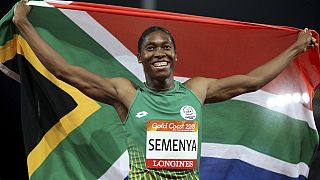
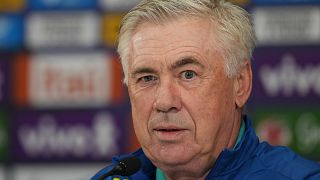
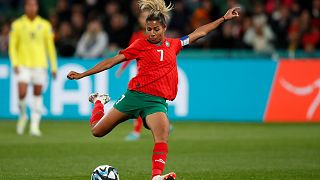
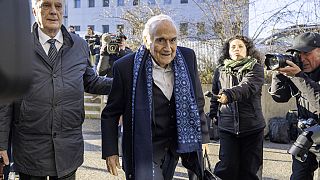
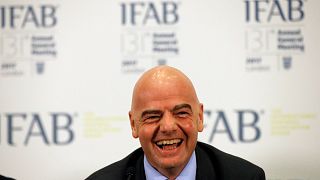
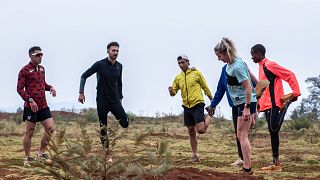



02:02
History made as Kirsty Coventry takes over as head of the IOC
01:14
Mali and Russia sign deal on nuclear energy during Goïta's Moscow visit
01:00
Pix of the Day: June 19, 2025
01:49
Russia says it plans to boost economic and military cooperation with Africa
01:44
Chinese president hails Belarus as a 'true friend'
01:29
Zimbabwe's Kirsty Coventry prepares to take Olympic body's top job